The new keys to success needed by industrial companies
Montse López
CMO & co-founder
Did you know…?
- Only 11.9% of Spanish industrial companies use data about the behaviour of visitors to their website.
- Only 21.8% pay to advertise on the Internet using targeted advertising methods.
Market developments in the industrial sector, new technologies and the digitalisation of processes have brought about major changes in purchasing processes. This is forcing B2B-oriented companies to undergo a transformation in all areas, but especially in marketing.
This change raises a lot of questions for business owners, managers and marketing managers in industrial companies. In this article we will go over some of the most important ones from the point of view of BCM Marketing as an agency specialising in the sector.
How to reach the customer now
The stages that an industrial customer goes through in the search for a product or service now take place mainly in the digital sphere and are becoming increasingly complex and independent of each other. This is especially true for the research and consideration of alternatives stages.
Today, more than half of the B2B purchasing process takes place online, before the customer decides to contact the supplier company either through its website, by email or by telephone. In other words, in most cases the first point of contact between seller and buyer is a Google or LinkedIn search.
This has changed the rules of the game 100%, but it is actually an advantage for companies that adapt naturally to the new medium, since if digital technology offers an advantage over traditional marketing, it is precisely the possibility of orienting all the marketing to defined and segmented target.
Industrial or B2B companies very often do not target the general public, but a very specific professional target. Digital marketing makes it possible to impact on them in a very selective way in order to transform them into qualified leads that can ultimately become customers.
How to reach more customers
A decade ago it might have been enough to have a corporate website that offered clear and persuasive information about your company and its products or services. Today, it no longer is. Throughout this time, digital marketing in the industrial sector has evolved and adopted many different forms that overlap and complement each other to reach more customers: email marketing, social networks, SEM, SEO, etc. The industrial company must keep up to date and make the most of these technologies, coordinating all its actions to monitor the traffic of potential leads and be present in the different parts of the journey that its customers go through.
This remains a major competitive advantage in the B2B sector. According to the latest Sectoral Analysis of the Implementation of ICT in Spanish Companies prepared by the Ministry of Economic Affairs and Digital Transformation, only 11.9% of Spanish industrial companies use information about the behaviour of visitors to their website.
As for social networks, only 50% of industrial companies are present on them, and only 36.9% analyse the data generated by social media.
Other data revealing the long way most companies in the sector have to go in the field of digital marketing is that only 20.4% have made sales via e-commerce and only 21.8% pay to advertise on the Internet using targeted advertising methods. Mostly they do so on the basis of website content or keywords searched by users in search engines (76.7%), but only 34.9% take advantage of the possibilities of tracking users' previous online activities.
Therefore, digital marketing is still a way to stand out from the competition in the industrial sector.
However, the complexity of today's digital marketing ecosystem means that you must always work with a strategy and a plan built around the specific objectives you want to achieve. Not having a strategic plan means having no objectives and no future.
On this path it is essential to have truly professional partners with experience in the industrial sector, something that is not always easy to find. Marketing and sales must work together. Specialised agencies no longer talk about marketing, we talk about business as a global concept. Because B2B marketing must help identify what your customers are looking for and generate the messages and resources that support and strengthen the sales process.
Much of today's digital marketing revolves around lead acquisition and management: generating valuable content so that your potential customers come to you and give you their contact details.
What to highlight as a company value
Business purchases are more discerning, which leads to lengthy B2B sales processes.
Industrial marketing is based on locating, attracting and convincing the customer with valuable arguments and content. Establishing a valuable relationship by offering solutions and answering their questions before they even pick up the phone or write an email.
How to stand out from the competition: branding
Branding differentiates us from the competition and takes the conversation away from the price factor. Behind business-to-business relationships there are ultimately also decision-makers, so the classic overly serious, monotonous and grey image is of no benefit to B2B companies.
Branding is the way a brand or company is perceived in the customer's mind. Investing in it, in online presence and reputation allows you to position yourself as a benchmark in your sector. Approaching the customer with a solid, reliable brand and with solutions to their problems will make them want to get to know you.
How to lead the customer through the buying process
This must be a team effort between marketing and sales, coordinating marketing actions with the needs of the sales department. Today everything moves very fast, and there must be fluid communication between both departments and/or with external partners, such as specialised agencies, at all times.
The challenge of marketing for Industry 4.0 is good and persuasive communication of the advantages and benefits of the product or service in question. Not only do you have to be able to do it well, you also have to be able to tell it even better. Avoid talking about the product and its features to explain the practical advantages it brings to the customer, for example in ROI.
How to get the most out of CRM software
Nowadays, new customers and more or less qualified leads arrive through many different channels: SEO positioning, SEM campaigns, participation in trade fairs, publications on social networks... This greatly complicates the management of their relationships with the company, and requires Customer Relationship Management (CRM) software to digitise and automate it.
Programmes such as Salesforce allow you to offer personalised attention, service and content tailored to each customer in order to leave a positive impression. With them, it is possible to have access at any time to the most relevant data: How did the customer reach you? How do they interact on the website?
Salesforce also includes Pardot, a very complete Marketing Automation solution that allows you to monitor the actions of customers and/or leads that are close to becoming customers and automatically know which ones are most likely to convert. In addition, the engagement studio alerts system informs you of the exact moment when your buyer persona interacts with your content.
How to gain customer trust
Customer loyalty is one of the most valuable assets of industrial companies. To achieve this, it is necessary to transmit values of trust, security, quality, guarantee... the customer must perceive that the company will provide solutions to their problems and that it will always be available to respond to their queries, especially in the post-sales phase. Each sale is the beginning of the next.











